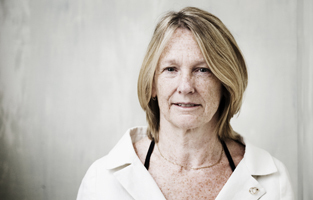
Jennifer Todd is a Fellow at the Geary Institute for Public Policy at University College Dublin and Professor Emeritus at UCD’s School of Politics and International Relations. A member of the Royal Irish Academy, she is presently Research Director of the Institute for British-Irish Studies at UCD, having held the position of Director from 2007-2017. She is a member of the advisory board of a number of projects, including the Northern Ireland Peace Monitoring Project.
Professor Todd’s work focuses on the interrelation of socio-economic and political processes and processes of cultural change. She is the author of many publications, individually and jointly, on ethnicity, identity, conflict, and Northern Ireland. They include Dynamics of Conflict in Northern Ireland (with J. Ruane) (Cambridge University Press, 1996) and two recent books, Identity Change after Conflict: Ethnicity, Boundaries and Belonging in the Two Irelands (Springer Palgrave Dec 2018) and (with J. Coakley) Negotiating a Settlement in Northern Ireland 1969-2019 (Oxford University Press, 2020).
Two years ago this month, Professor Todd was an invited speaker at a forum on Brexit jointly sponsored by the Keough-Naughton Institute, the National University of Ireland Galway’s Moore Institute, and Queen’s University Belfast: Brexit and the Future of British-Irish Relations.
More recently, her intersections with the Institute are with Analysing and Researching Ireland North and South (ARINS), a joint project of the Institute and the Royal Irish Academy. The ARINS project brings together experts to provide evidence-based research and analysis on the most significant questions of policy and public debate facing the island of Ireland, north and south, in a post-Brexit context. Professor Todd attended the founding ARINS conference and is the author of one of the first articles published under the ARINS name: “Unionism, Identity, and Irish Unity: Paradigms, Problems, and Paradoxes (January 2021). She is a member of the ARINS steering committee.
Since March 2020, Professor Todd has been working from home in Dublin. Plans to travel and research, she writes, have temporarily been put aside. It is from Dublin that she answers our three questions.
_____________________________
What are you working on?
I’ve been working on a long-term project—a new joint book on the dynamics of the Irish conflict, and as a spinoff writing on unionisms. ARINS has been enlivening, offering new directions of thought, new colleagues and welcome discussion around constitutional issues. ARINS, with the Irish Department of Foreign Affairs Reconciliation Fund, has supported my joint research project, ‘Giving voice to diversity: Plural perspectives on constitutional change’. This project—with Joanne McEvoy of the University of Aberdeen and Dawn Walsh of UCD—starts from the idea that constitutional change is a time of potential transformation when a newly inclusive politics can be forged. But for this to happen, a multiplicity of voices must be re-engaged in defining the issues and principles of a new society . . . especially so in Ireland, where the conventional unionist/nationalist debate turns off over half the population in each jurisdiction. Our project involves mapping the diversity of voices, exploring the mechanisms of exclusion, and proposing ways of maximising inclusion in constitutional debate. We are conducting interviews and focus groups on Zoom—a new experience. Our first article is due mid-year for ARINS.
What are you reading?
Thinking about unionisms highlights the different ways of doing territorial politics. Frederick Cooper’s Colonialism in Question got me exploring what he calls ‘empire-thinking’. Luckily, there are plenty of the historical classics on our various bookshelves to help me catch up. Recently I’ve read Timothy D. Snyder’s The Reconstruction of Nations and Jay Winter’s Sites of Memory, Sites of Mourning, both of which touch on that interface between empire and nation. I’ve also returned to novels for the first time in many years and have found lots on my daughter’s shelves. I have just finished Salman Rushdie’s fascinating account of India in The Moor’s Last Sigh.
What, during the pandemic, are you missing?
I have been missing people, encounters over coffee, talking out thoughts over chance meetings. I’ve also been missing person-to-person research in Northern Ireland. And, now that it’s not possible, I’ve realised just how important it is to me to be able to move around—in Ireland, France, the US.
Previous installments of "Three Questions":
January 2021: Professor Ailbhe Darcy, Cardiff University
December 2020: Professor Daniel Carey, National University of Ireland Galway
November 2020: Professor Sonja Tiernan, University of Otago, New Zealand